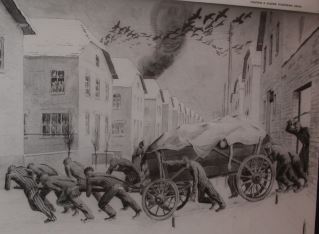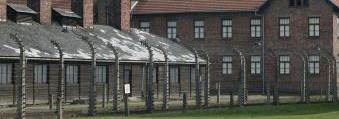|
In theory, nothing would be wasted. Hair, gold teeth, crutches, braces, prostheses and suitcases were collected and sorted for potential sale or use among the elite and those who served their cause.
|
But
Hitler's disgust with weakness and imperfection
didn't motivate mercy toward the crippled.
________________
The
drawings below were done by eyewitnesses and show
the horrors of the death camp. Photographs were
permitted, since reminders of man's potential for
cruelty must spread around the world. |
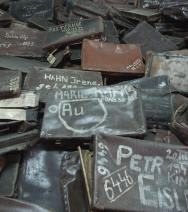
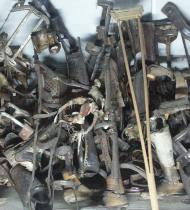
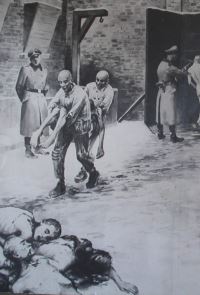 Shot or hanged at the "execution wall" (see last
page), the dead were carried by near-dead
prisoners and piled in the snow.
Shot or hanged at the "execution wall" (see last
page), the dead were carried by near-dead
prisoners and piled in the snow.
